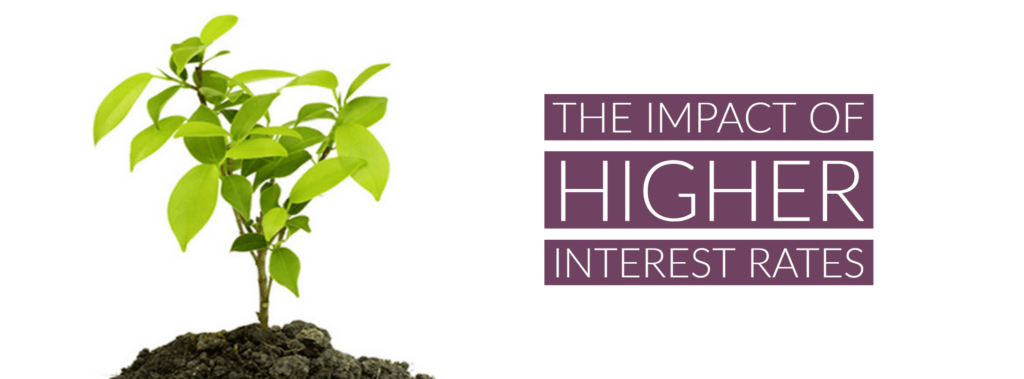The Impact of Higher Interest Rates

Interest rates are now at their highest rate for 15 years and the whole country is reeling from the impact. So far, letting agents have been relatively unaffected. Some landlords are leaving the sector because they cannot afford the increase in their mortgage payments but increased rents have more than compensated for the lost fee income from these properties.
Residential sales agents, on the other hand, have been badly hit. The fall-through rates have increased because buyers are trying to reduce the price that they have agreed to compensate for the higher mortgage payments. In other cases, buyers have not been able to complete their purchase because their mortgage offer was withdrawn at the last moment.
New buyers are reluctant to commit to a purchase because of their uncertainty over future interest rates and those that will commit are making low offers to compensate for the increased mortgage costs.
Many sellers are not yet prepared to accept that prices have dropped so their houses languish on the market unsold. Things really are very difficult at the moment.
Given time, the market will sort itself out. Prices will drop to a level that compensates for the increased mortgage costs. Interest rates will stabilise and then probably fall again, although probably not to the very low levels that we have become accustomed to. And when this happens, buyers’ confidence will return.
In the meanwhile, estate agents will need to remember skills that they have not had to use for several years now. How to obtain price reductions. How to negotiate a deal. How to break deadlock. How to resurrect a sale that has fallen through.
Downturns in the housing market usually last a year or two but I fear that this one will last longer. The problem is that increasing interest rates does not have the same immediate impact that it used to. A lot of homeowners are mortgage-free. A high percentage of homeowners who do have a mortgage are on fixed rates so they will not feel the impact for anything up to five years. And anyone with savings will see their income rise rather than fall.
Those that are affected, however, will feel the impact very sharply and the reduction in their disposable will be huge. The government tells us that higher interest rates are essential in order to control inflation but it seems to me to be grossly unfair that such a small percentage of the population will have to bear such a disproportionate share of the pain.
Older people with savings will do better than younger people. Middle-aged people with smaller mortgages will do better than people who have only recently got onto the housing ladder. People who fixed their mortgage for five years will do better than people whose two-year fixes have just expired. And tenants will generally be hit harder than homeowners. The division of the financial pain could hardly be more unfair if 30% of the population were to be selected at random by a lottery.
I am not even sure that I agree anymore with the premise that higher interest rates are the best way to control inflation. For every loser in this financial lottery, there is a winner and one could argue that sharp increases in rents and mortgage payments are themselves inflationary because they motivate workers to ask for higher pay increases to pay their bills.
I don’t have a magic solution to this problem but until market forces have had time to correct the situation, estate agents will just have to work extra hard to use half-forgotten skills to maintain or increase their market share and maintain their income until the market improves.
Adam Walker is a management consultant and business transfer agent who has specialised in the property sector for more than forty years.
